MTC English is an app that assists students gain proper English pronunciation skills. It was launched in late 2013 by a risk analyst with a penchant for learning and teaching languages.
Working for Nimble Mobile, I was responsible for the UX design of the iOS and Android apps, as well as assisting in the creative direction of the apps.
During extended trips across South America and Asia, the client made friends who were struggling with spoken English. While helping them with pronunciation issues, he realised there was a need to assist with spoken English in real life situations and an app could be a personal tool for improving their pronunciation and contextual knowledge of common words.
In early strategy brainstorms, I worked with the client to identify ways of teaching pronunciation, to formulate a strategy for adapting the current system of teaching on mobile.
We decided to present all 44 phonemes (sounds) that make up words in English using audio feedback and animations. This would be accompanied with sets of sample words that often confuse students (eg silent words). To help test and practice their skills, the app would also contain some word quizes, paving a way for additional games and revenue in the future.
The app would have to be easy to understand, available across iOS and Android (more popular in developing countries) and be available in multiple languages starting with English, Spanish, Portuguese, Mandarin and Japanese.
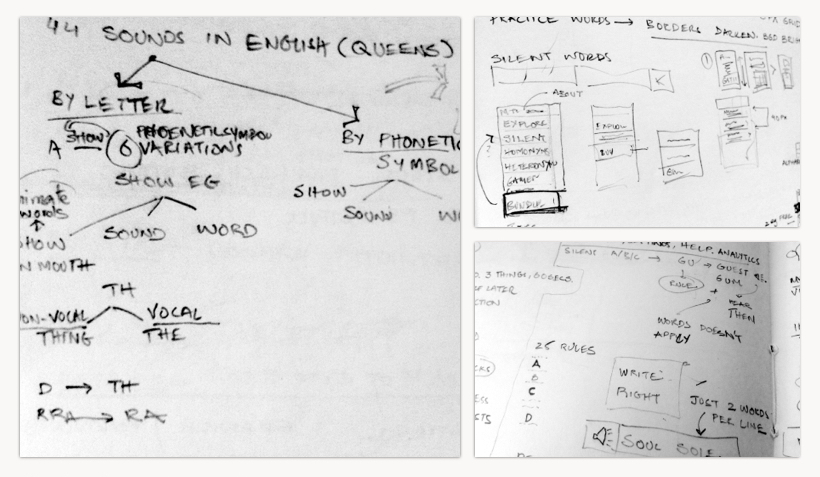
Starting with sounds, I organised them by symbols and letters for easy reference. These were cross-referenced with words to enable various approaches to learning.
The Phonemes Chart was a key starting point in my research, as it was important to maintain the characterisation and symbols for compatibility with various teaching systems in use.
In the tradition of word games like Scrabble and Boggle, I kept the idea of laying out the sounds and words as tiles to provide visual clarity and structure.
As the app is offered in 5 languages, this structure also helped demarcate the primary content from the labels and copy in the app, making it easier to manage translations and their space requirements in development.
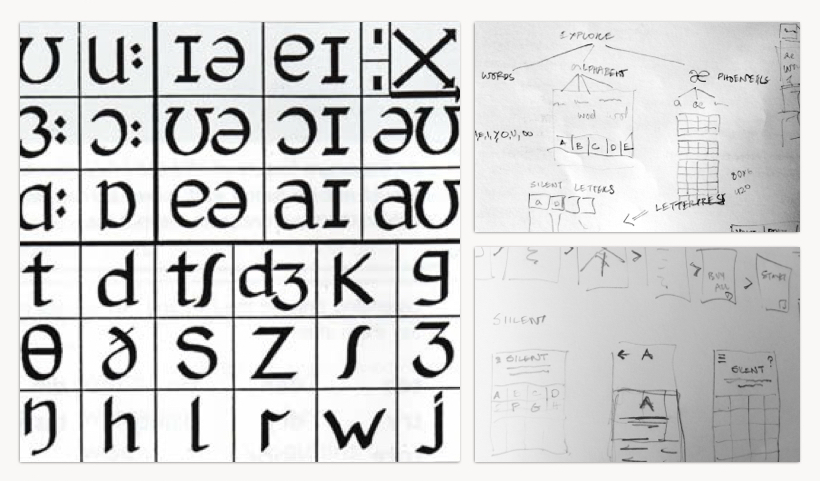
Phonemes are usually taught through a complex symbol chart of Consonants, Vowels and Dipthongs. These were reorganised into a tiled grid.
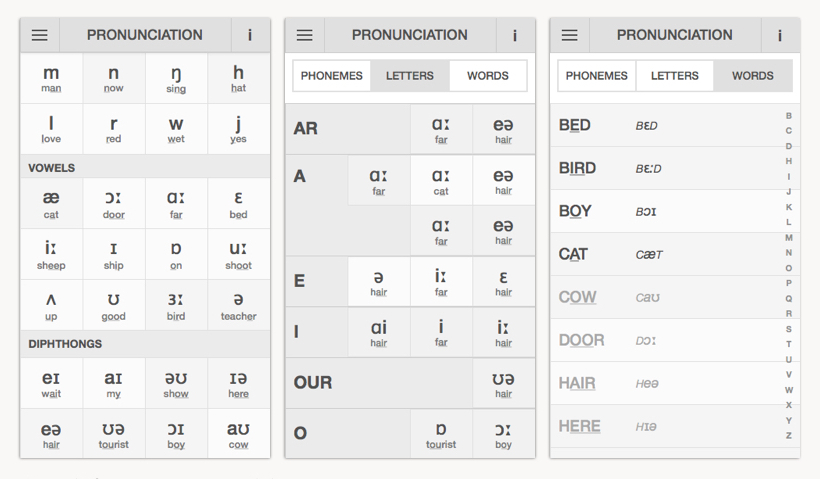
The grid for phonemes was split into the normal grouping, as well as by letter of the alphabet and words, to connect with real life usage.
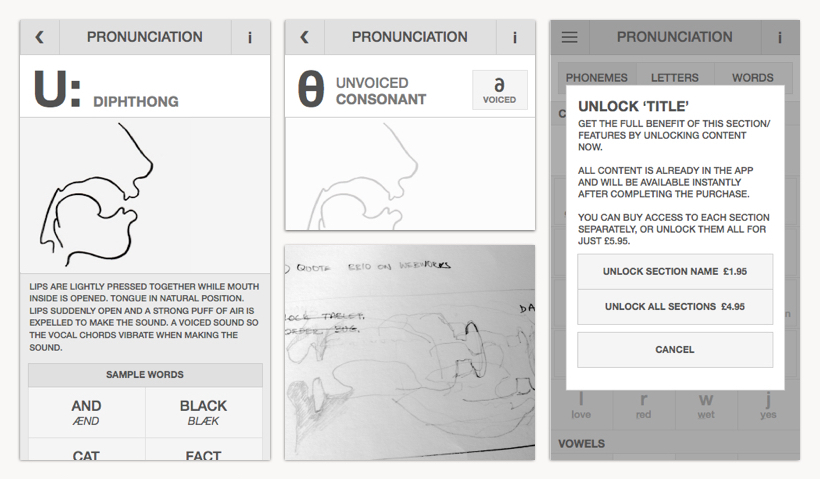
Tapping a tile leads to an animated diagram with explanation on pronouncing correctly and sample words allow practice. Locked tiles prompt for in-app purchases.
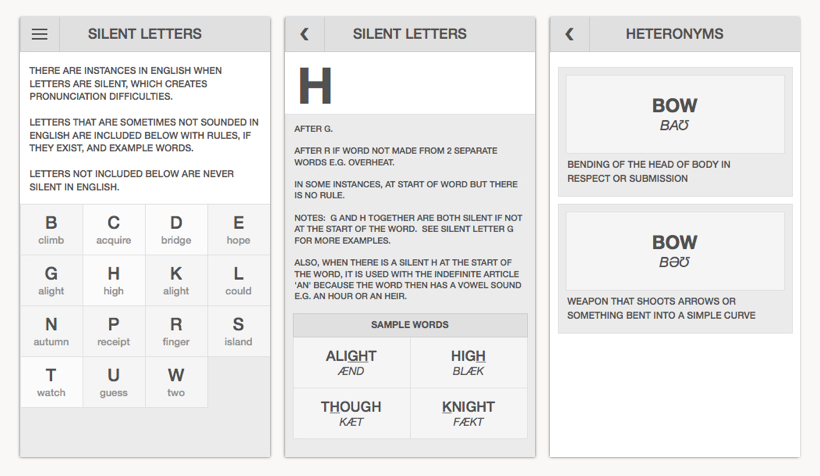
Common missteps in learning English are tackled under Silent Letter rules, Homonyms and Heteronyms. Inside tiles initiate sounds for comparative listening.
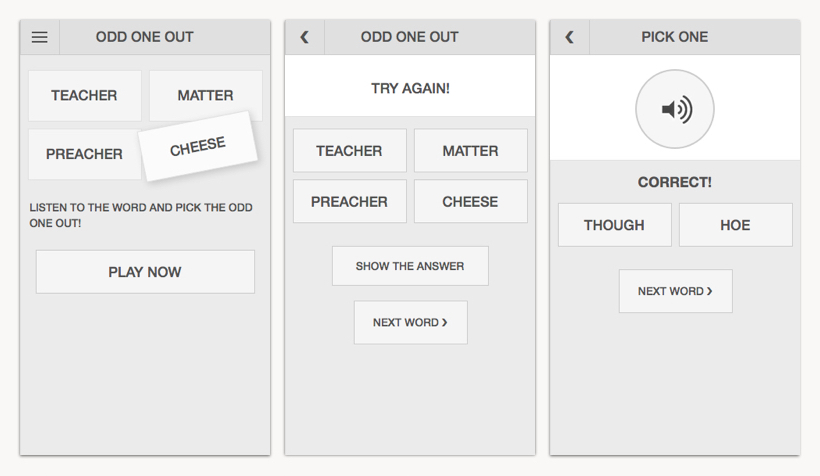
Quiz games allow practice and testing. With words from previous sections, users identify words with matching sounds or differentiate between similar sounding words.
Most projects need a lot of initial research to understand the knowledge domain and issues around it. MTC English was particularly hard due to the specialised nature of content and the considerations required to shape an experience around existing perceptions of learning.
I was mostly pleased with the outcome, particularly with being able to distill the complex subject matter into something simple and easily approachable.
The supporting content helped differentiate the app from its institutional competitors and the gaming element is new to the genre. But due to time restrictions, I was unable to flesh out the quiz elements for a more satisfying gaming experience.
© 2018 Mustafa Zafar